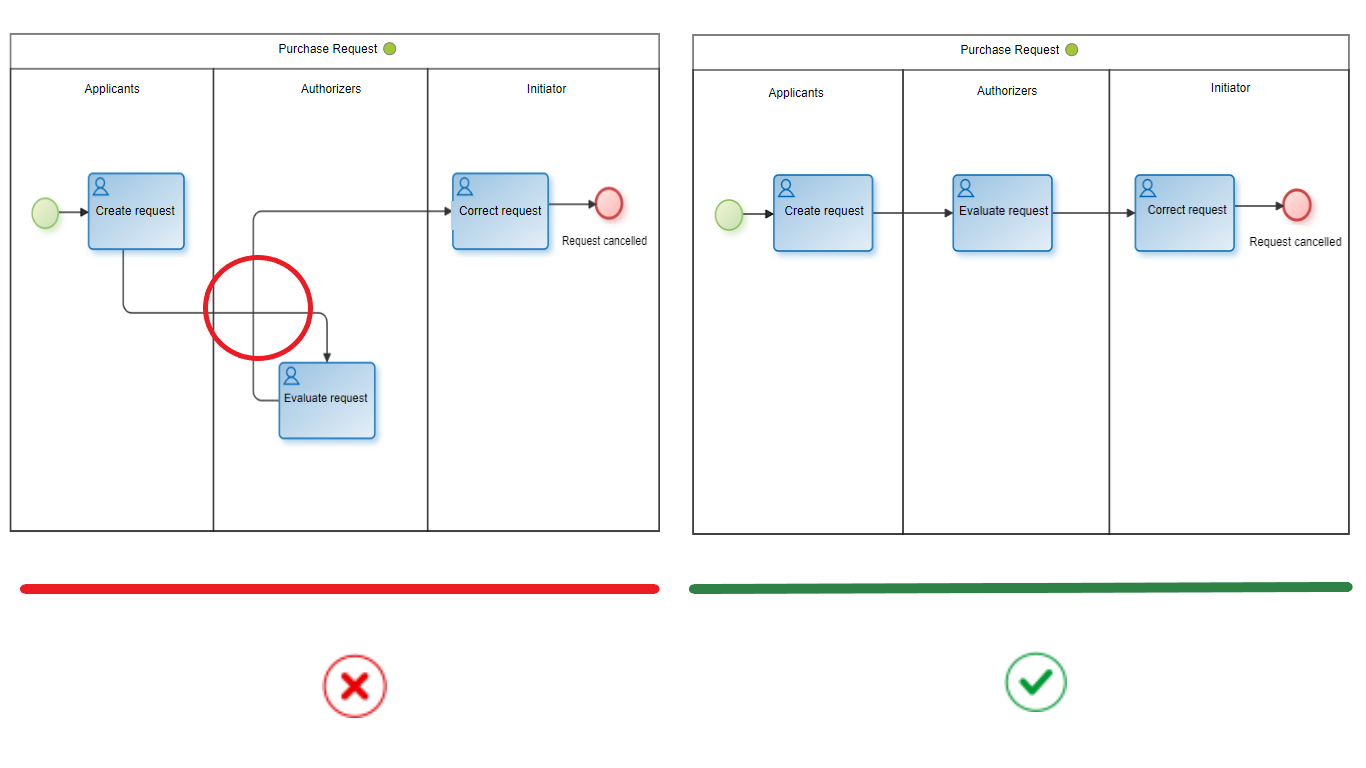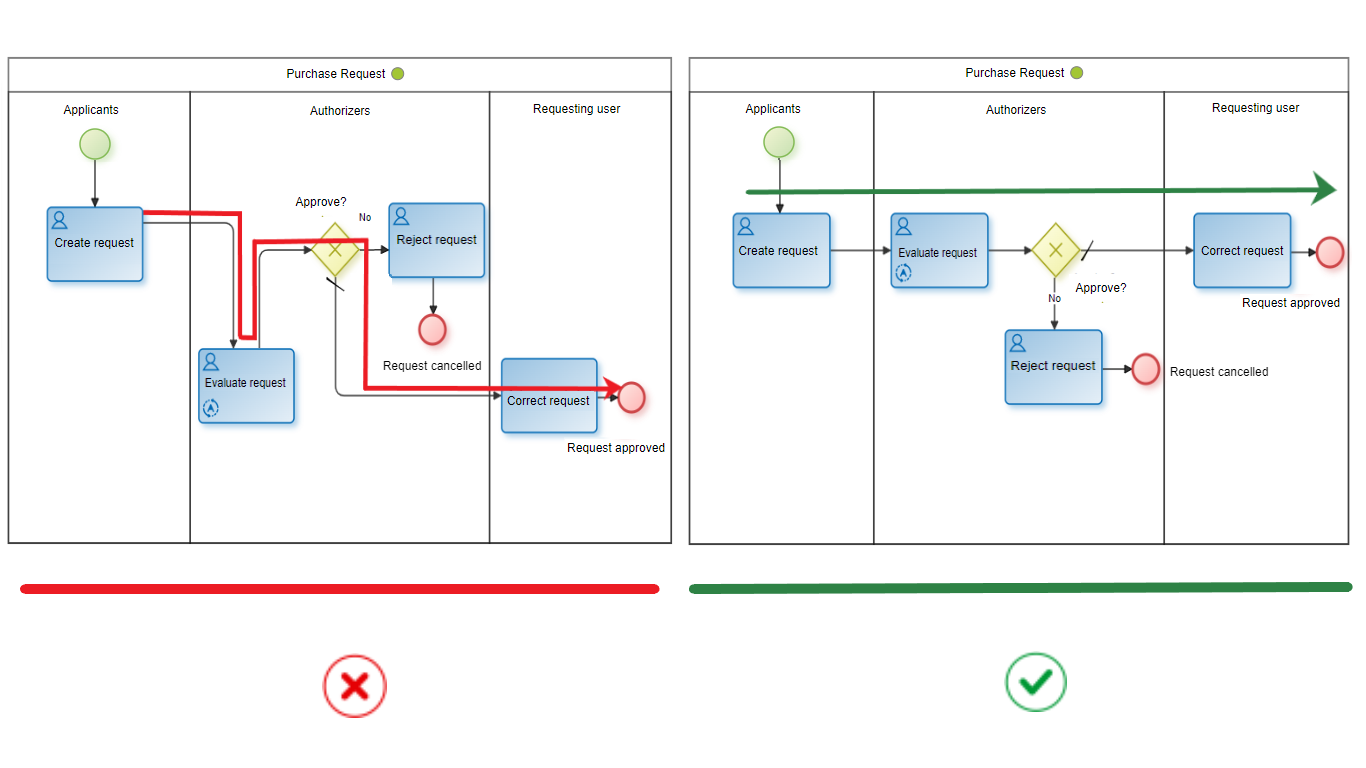Processes Modeling
Good Practices
Name
•The name of the processes and sub processes must clearly describe their main purpose.
•Short names or abbreviations must not be used.
Diagrams Size
•Long diagrams do not allow to give a global perspective to the readers, they make reading difficult and don't communicate clearly the purpose of the processes.
Number of Activities
•Although various factors affect the complexity of a process, the number of activities is one of the most relevant factors.
•As a general criterion, diagrams with a maximum of 15 to 20 activities are recommended.
Unification of Activities
•If a set of consecutive tasks can be executed sequentially by the same person, at the same time, then these activities must be integrated into one.
Subprocesses
•The use of subprocesses is recommended to group activities with the same purpose.
Activities Alignment
•It is recommended to keep the activities aligned with each other, horizontally and vertically. This practice allows ordering the diagrams, keeping them neat visually.
Standard Size of Elements.
•It is recommended not to change the size of diagram elements.
•Keeping the standard sizes avoids discrepancies and keeps the visual elements homogeneous.
Flow Orientation
•For people who read from left to right, it is intuitive to follow a logical flow from left to right or from top to bottom. It is recommended to diagram the process flows in this direction.
•The crossing of connectors must be avoided, maintaining a chronological sequence and a consistent flow direction.

Primary Scenario Clarity
•The main road should be easily identified when reading the diagram, so it is recommended to diagram the main road first and then add the alternative roads.

Links
•It is recommended to use this type of event to avoid complexity in the flows.
![]()
![]()
Throw Link Catch Link
Artifacts
•It is recommended not to overuse the objects that serve to document the process. Notations, associations, groups and data objects are elements that can clarify the diagram, but the excessive use of these types of elements can increase the visual complexity of the model.
•In order not to use a large number of artifacts, it is recommended to document the details within each activity or each element of the model.
